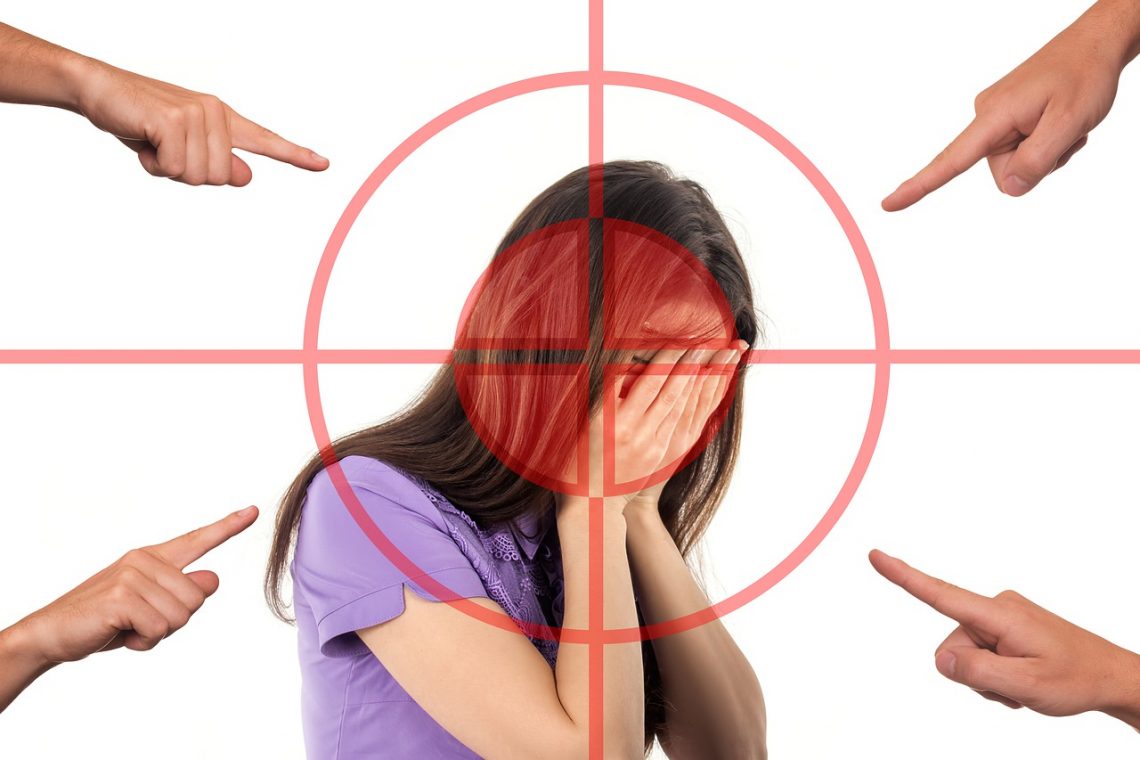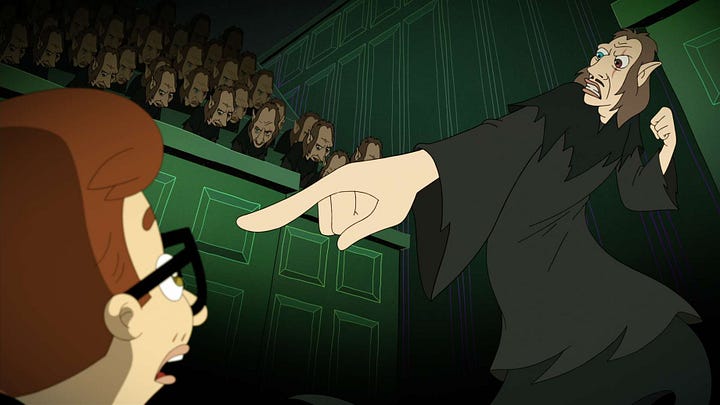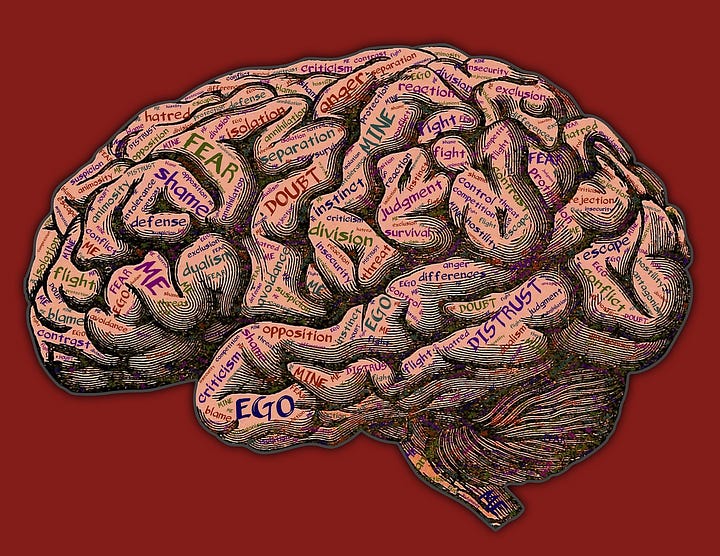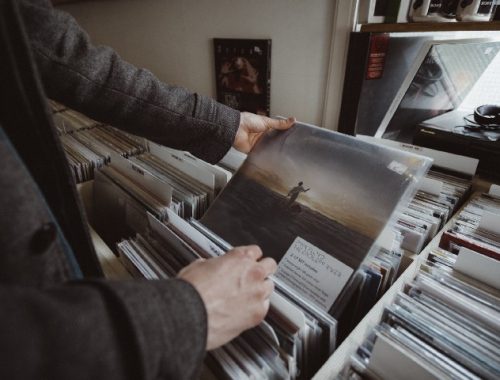
Naming Shame and Other Wizards
On feeling shame and accurately identifying feelings.
When’s the last time that you got called out for something that triggered shame? How did you handle it? How did it make you feel? Is the stock image above indicative of your feelings? I’d be interested to know in the comments or a separate post (tag me).
I thought of this today because of a situation that sent me down a weird shame spiral. I say “weird” because it’s not like me. One of the reasons it’s not like me is that it goes against my recommendation to that others be gentle with themselves.
This post contains several movie references, including one of the best parody movies ever and the perfect romantic comedy. Welcome to my mind.
The situation — my fault
When taking my dog for a walk, I rarely attach her leash to her until we’re on the front patio. She’s got a pretty good track record of staying on the patio or walking to the sidewalk and staying there while I lock the door. Often, I leave the door open, and she hangs out on the patio. She likes to stay close to her humans. Usually.
“Pretty good,” not perfect. Usually.
Today just as I was about to turn around to lock the door, I saw a grey cat.
I should have grabbed the dog then, but instead, I continued to turn around to lock the door. When I turned back, the dog had taken off after the cat.
The cat was in a gated front yard; the dog was not visible. Just then, I heard a voice coming from the backyard two doors down.
“Come get your dog! Put him on a leash! This isn’t the first time!”
Oof. He was right. It wasn’t the first time. On another recent occasion, the dog took off into that same neighbour’s yard while my boyfriend and I did some work on the car. That time, I had to retrieve her. I feel uncomfortable going into anyone’s space uninvited. I was horrified.
As my neighbor shouted at me, I apologized repeatedly. During this exchange, a feeling of anxiety crept over me. The dog came to me as soon as I called for her and I leashed her up. I felt like my metaphorical tail was between my legs.
The dog was being a dog.
Still, I’d been yelled at and called out.
In response, I felt shitty.
He didn’t “make” me feel that way. As I shared in a post last December about boundary setting,
No one can make youfeel anything… Instead, actions trigger emotions that come from memories of past experiences, from our stories and our programming.
I felt shitty.
What does that even mean? I had to unpack that.
[For more in-depth thoughts about the word “shitty”, visit my subsequent post, The Deliberate Labelling of Feelings. I initially shared it all here but the day after posting this story I broke that chunk off to make it its own story.]
After I identified lingering anxiety over this incident, I did some self-analysis. I squeezed the pimple. I didn’t press on it as much as I’ll do after I publish this, but the act of typing it out is serving as part of the process.
After my dog walk, the anxiety and the incident that caused it showed me today’s writing topic.
(I had planned something different to share, but that one will be well-timed tomorrow.)
The chronology — cause and effect
I got called out on my dog being off-leash and her trespassing in a neighbor’s backyard. I felt shitty. Shitty, in this case, means embarrassed, disappointed [in myself]” and, eventually, shame.

Phew, I named the shame and two others.
Digging deeper into why I was embarrassed and disappointed:
Fear of letting people down, which is related to fear of lacking approval.
I also identified this cliche: Caring what my neighbour thought, even though he and I barely know each other and have only exchanged small talk.
A fear of not being liked that I didn’t know existed poked out.
[Now I’m imagining the movie Alien and hoping that the fear would proceed to sing and dance like the parody in Spaceballs. You’re welcome.]
The shame

Brene Brown defines shame as,
the intensely painful feeling or experience of believing that we are flawed and therefore unworthy of love and belonging — something we’ve experienced, done, or failed to do makes us unworthy of connection.
In her famous TED talk, she shared,
Shame is a focus on self, guilt is a focus on behavior. Shame is “I am bad.” Guilt is “I did something bad.” How many of you, if you did something that was hurtful to me, would be willing to say, “I’m sorry. I made a mistake?” How many of you would be willing to say that? Guilt: I’m sorry. I made a mistake. Shame: I’m sorry. I am a mistake.
A bit of that did burble up to the surface.
Questions help us get to the root of our self-judgment.
When did I first feel shame? Is this feeling related to childhood? I eventually stopped and decided to tap the discomfort away using EFT.
First, though, I acknowledged the discomfort because I’ve written a lot about leaning into discomfort instead of bypassing it, and I try to avoid being a hypocrite.
We carry with us layers and layers of negative feelings, self-judgments and neuroses. Some people spend years in therapy, trying to unpack it all.
I feel that I’ve won when I identify even one negative feeling and its cause.
Universal timing
The post I published yesterday was about apologies and forgiveness and linked to a recent post called How to Apologize on Gabrielle Bernstein’s website. It seems appropriate that a reason to practice self-forgiveness would be handed to be on the following day. I did go through her suggested four steps of self-forgiveness.
Just reading the four steps diffused some of the anxiety.
It’s done. I choose love.
And now, a repeat of the questions I asked up top + a poll
Questions-
When’s the last time that you got called out for something that triggered shame? How did you handle it? How did it make you feel? Is the stock image above indicative of your feelings?
Poll-
True or False: When Harry Met Sally is the perfect romantic comedy. The correct answer is “true”, but if you disagree I invite you to tell me why.
You May Also Like

Music Appreciation
October 3, 2019
Why You Need To Support Independent Businesses
May 9, 2019

